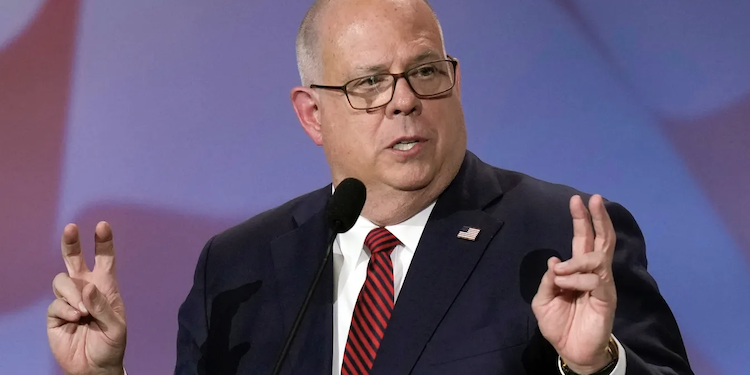The day after Larry Hogan became Maryland’s 62nd governor in 2015, the executive director of the Maryland State Ethics Commission, Michael Lord, sent him a letter. Hogan was coming to the top job not just as a politician but as president and principal owner of HOGAN, a multi-purpose real estate brokerage firm based in Annapolis. Lord was writing to tell Hogan that, as governor, he “should not personally participate in any matter that may come before a state agency that involves his business.” To be completely clear, Lord added that “participation includes supervision of others involved in a matter.”
That put Hogan in a spot. By its own account, HOGAN represented a “who’s who” of the Maryland real estate industry. As governor, Hogan’s powers would range from setting rules for housing projects to awarding grants and tax credits to developers. So Hogan entered into a trust agreement that he said would prevent conflicts of interest. But it was not a blind trust. He put his brother Timothy in charge of the firm and made several executives at the firm trustees. In a letter to Lord, Hogan wrote that the agreement would allow him to remain apprised of his firm’s investments, investors, and other matters including the location of its real estate projects. In April 2016, 15 months after Hogan took office, the State Ethics Commission approved the arrangement.
If Hogan hoped that the agreement would prevent the appearance of a conflict of interest, it didn’t. Over Hogan’s eight years in office, nearly 40% of the competitive affordable housing awards overseen by the governor went to developers listed as clients on HOGAN’s website, according to a TIME review of public records. Those awards were concentrated among six developers who competed against more than 60 other companies during that time. As one of three members of the Board of Public Works, an administrative body that determines how taxpayer money gets spent, Hogan voted on five occasions to issue additional loans or grants to four of those same developers, according to public records. All the while, Hogan continued to hold regular meetings with his company’s leaders, according to his official meeting calendar, which was obtained by the Washington Monthly via a FOIA request in 2019. “It’s definitely a serious conflict of interest,” says Richard Painter, chief White House ethics lawyer in the George W. Bush Administration. “He should have stayed away from it.”
Maryland law prohibits government officials from taking part in decisions in which they or a close relative have a known financial interest, or if the decision could reasonably be expected to “result in a conflict between the private interest and the official State duties of the official.” A Hogan aide says he did nothing wrong. “Gov. Hogan adhered to a legally-binding Trust Agreement, approved by the independent State Ethics Commission, that prohibited his participation in any matters related to his business,” says Michael Ricci, a former state official and Hogan spokesman. Ricci says HOGAN had no involvement in the projects that went before the BPW.
The exact nature of the developers’ relationships with HOGAN and the governor remains opaque. For nearly a decade, the six firms appeared on a list of HOGAN’s “longstanding” clients. Contacted by TIME, the developers’ responses ranged from descriptions of extensive collaboration over many years to denial they had been paying clients to a refusal to comment at all. Hogan declined to provide a detailed description of his relationship with those developers, nor did he answer questions about whether and how much he or his company made from listed clients with business before the state during his tenure.
Click here to read the rest of the article written by Eric Cortellessa over at TIME






